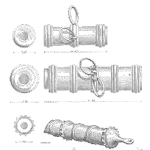
Underpinning the coherence of statistical process control, process capability analysis and numerous other statistical applications is a phenomenon found throughout nature, the social sciences, athletics, academics and more. That is, the normal distribution, or less formally, the bell curve. Because of its ubiquity, this normal distribution is arguably the most important data model analysts, engineers, or quality professionals will learn.
[Read more…]












